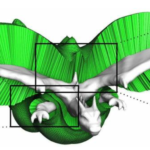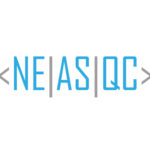

“A major breakthrough that provides spectacular results”: This is how Dmitry Sokolov, a researcher at LORIA and head of the Pixel team, describes the results he is about to present to scientists, engineers, industrialists, programmers, or professionals cinema and video games gathered at SIGGRAPH (Special interest group on computer graphics and interactive techniques), the world’s largest conference on computer graphics.

Rémi Decelle, a Ph.D. student in the Adagio team and at INRAE, received the Best student paper Award at the DGMM 2021 conference, International Conference on Discrete Geometry and Mathematical Morphology. This prize was awarded to him for his article entitled Digital Straight Segment Filter for Geometric Description, Rémi Decelle, Phuc Ngo, Isabelle Debled-Rennesson, Fleur Longuetaud, Frédéric Mothe.

In art history, it is commonly accepted that the Flemish painter Jan Van Eyck knew nothing of the laws of perspective. Gilles Simon, lecturer at the University of Lorraine and researcher at the LORIA computer science laboratory (CNRS, Inria, University of Lorraine), carried out a probabilistic analysis of five paintings of the artist between 1432 and 1439 and revealed that the painter was in fact far ahead of his time thanks to computer vision methods. He used an advanced perspective machine with two degrees of freedom to represent space as closely as possible to human vision. This surprising discovery solves a major enigma of art history and means Jan Van Eyck is the pioneer of techniques such as augmented reality or synthetic holography.

The masks worn by teachers during the Covid-19 pandemic has caused difficulty in learning to read for pupils who find it hard to discriminate language sounds. This has been proved by researchers from the Loria (Lorraine Research Laboratory in Computer Science and its Applications; Université de Lorraine-Inria-CNRS), the Laboratory of Cognitive Psychology (Aix-Marseille University-CNRS) and the University of Geneva. They carried out a study on pupils aged 5 to 7 years which was published on May 12th in electronic format and June 9th in the print journal L’année psychologique/Topics in Cognitive Psychology.

The NEASQC (Next ApplicationS of Quantum Computing) project led by Atos is made up of 12 multidisciplinary industrial and academic partners from 8 different European countries. The project works on exploring and developing quantum computing applications with NISQ (Noisy Intermediate Scale Quantum) technologies which will be available in the near future.
